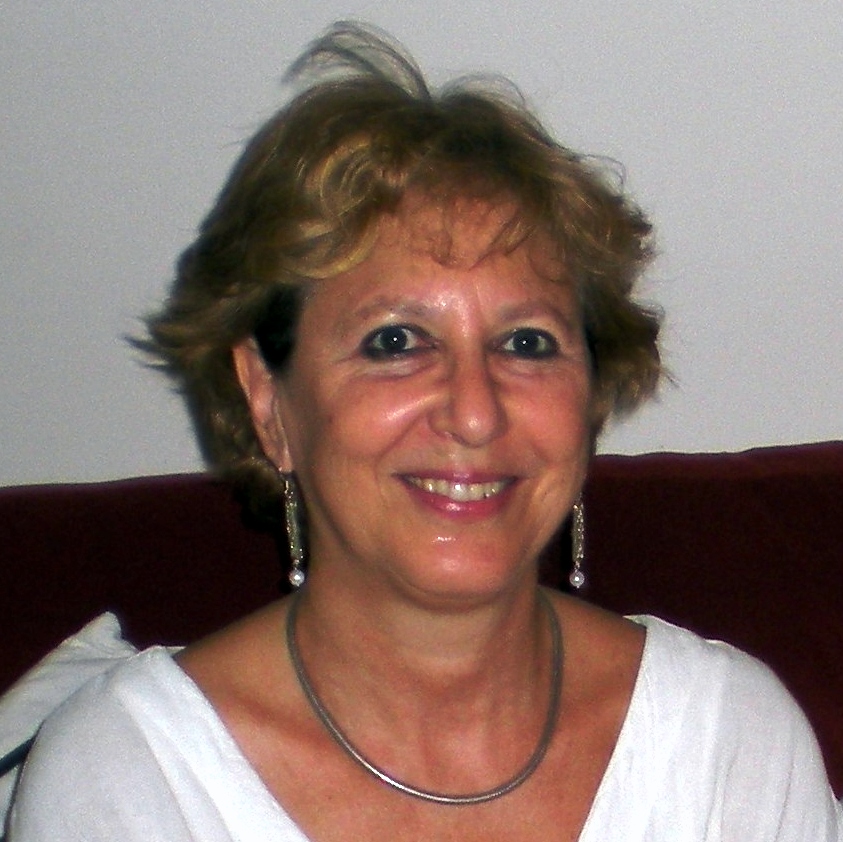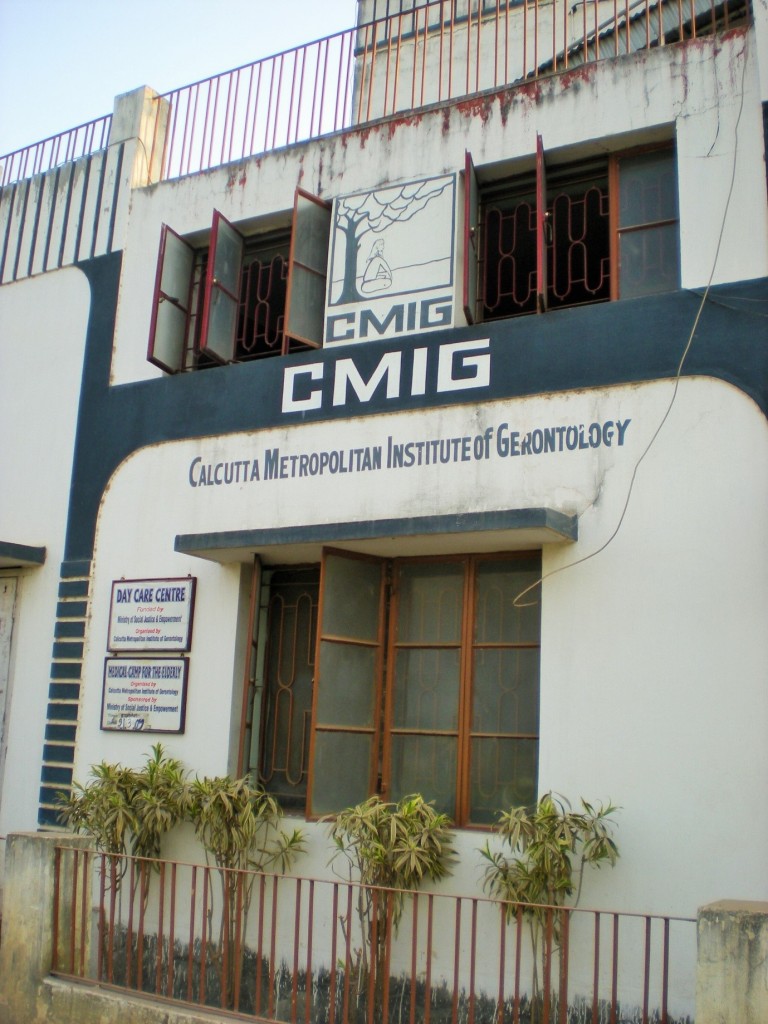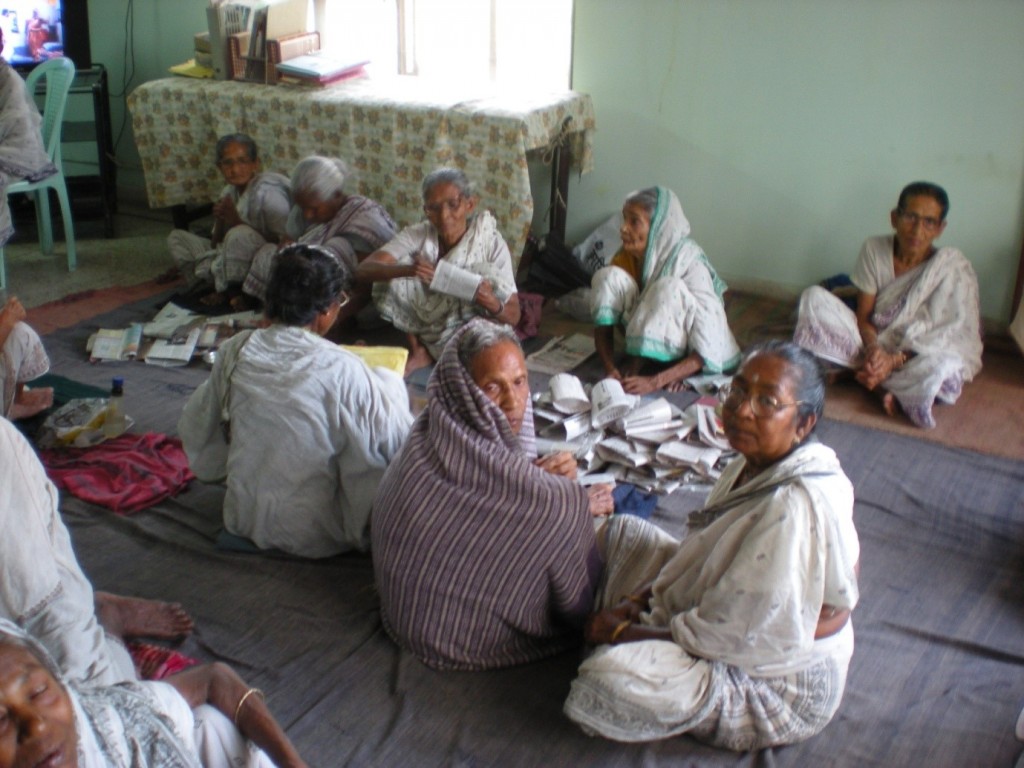 Valerie Lipman is a Postdoc Intern at the Social Care Workforce Research Unit in the Policy Institute at King’s College London.
Valerie Lipman is a Postdoc Intern at the Social Care Workforce Research Unit in the Policy Institute at King’s College London.
Here’s a challenge for learning institutes in the UK: how can they deliver on-site direct services for the vulnerable groups whom they’re studying and promoting? I talked to Dr Indrani Chakravarty, the founder and Director, of the Calcutta Metropolitan Institute of Gerontology (CMIG) about her experience of doing just this and how she marries research with real practice.
Dr Chakravarty and I first met in 2007 when I was researching the changing perceptions of older people in India, as part of a project about the role of international development in relation to older people. I was based in Kolkata and alighted on CMIG as the only body in West Bengal at the time devoted to the study of ageing and older people. CMIG carries out research, seeks to influence policy makers and others, offers training and education, and provides direct services for older people. I was very taken by the two small day centres (50 people attend each day) that they ran on site. The continuum of research, policy and practice in the one place – each informing and benefitting from the other – was exciting and unusual in my experience of working with older people. It made me wonder if the model was replicable, so I followed up with a visit Dr Chakravarty in 2016 and further email contact to find out more of the history of CMIG and how it links its research to practice. It is certainly a good working example – and maybe a gift in the eyes of the type of ‘impact’ research that the Research Excellence Framework is now seeking.
What is the CMIG?
The CMIG is a non-profit, voluntary, secular, organisation that is involved in research, training, and service programmes in gerontology. It is located in Kolkata in West Bengal, India and was established by Dr Chakravarty in 1988.
 Its website states that ‘The aims and objectives of this organization is (sic) to provide a meaningful life to the elderly and to integrate them with the mainstream of the society’. The institute offers a one year postgraduate diploma course in Gerontology and Age Management, in collaboration with the University of Calcutta. The university also places PhD students with CMIG. A second major strand of CMIG’s work is as training provider on ageing. Their extensive programme aims to raise awareness of ageing and older people among all sections of the community, from schoolchildren to doctors. Training is funded through the National Institute of Social Defence (within the national government’s Ministry of Social Justice & Empowerment).
Its website states that ‘The aims and objectives of this organization is (sic) to provide a meaningful life to the elderly and to integrate them with the mainstream of the society’. The institute offers a one year postgraduate diploma course in Gerontology and Age Management, in collaboration with the University of Calcutta. The university also places PhD students with CMIG. A second major strand of CMIG’s work is as training provider on ageing. Their extensive programme aims to raise awareness of ageing and older people among all sections of the community, from schoolchildren to doctors. Training is funded through the National Institute of Social Defence (within the national government’s Ministry of Social Justice & Empowerment).
For CMIG, research is always about poverty and older people. They describe themselves as an action oriented research institute. Their research findings show that older people a) want to be productive and b) want and need to be part of society. They say their work is iterative – learning from the practical and feeding the academic – their policy and training programmes.
Indrani began her career as a research scholar at the Indian Statistical Institute (ISI). Watching older people as they came to the Institute to collect their pensions sparked an interest in how older people managed their daily lives, and she decided to undertake a PhD in gerontology, in which she explored the experiences of older people living in Kolkata. This was the first study of its kind in Eastern India [Bihar, Jharkand, Orisha and West Bengal]. Her studies led her to embark on a comparative study in Tokyo and on her return to India she decided to set up, what has now become, the CMIG, saying:
There was virtually no awareness of the subject of gerontology in Kolkata at that time and following two years of primary research about the lives of the very poor elderly, I decided to start a small day care centre.
The users of the day centre were identified by CMIG’s team of social workers who were carrying out door-to-door interviews in the slums assessing the problems facing older people. The day centres are open only to those who are officially designated as being ‘below the poverty line’[1], that is, without any visible means of income. Several cases of abuse by the family were found and these older people were identified as priority attendees. Participants are offered free health treatment and ‘everything they need’, including food, clothes, entertainment, and medical treatment. The centres are supported by a government grant from the Ministry of Social Justice and Empowerment, which provides up to 80% of costs, including medicines.
Today, CMIG runs two day centres, one at each of its offices. These are open from 12 – 4pm, Monday to Saturday. There are about 100 regular attendees, split fairly evenly between the two sites. Generally people make their own way to the centre. The centres provide a lunch and a snack every day, clothing, entertainment (watching TV, music, outings), and are composed mostly of women. In this respect I found little difference with the traditional UK day centres, except that people sit comfortably on the floor. There was a recent gap in government funding for these centres but following considerable advocacy from CMIG its grant has been re-instated.
 CMIG Day Centre – making paper bags
CMIG Day Centre – making paper bags
In addition to the social aspects though, there is a free weekly medical check, and free medication if required; and an income generating project for the individual older people themselves. The participants make small paper bags which are sold to street vendors. CMIG social workers help them to sell these in the market. Members of CMIG and neighbours provide the paper, usually old newspapers, for the bags. Those who make and sell the bags share the earnings – they can earn about 3-5 rupees per person per day. Where poverty is extreme, it can be very difficult to accommodate a member of the family who may have increasing medical needs, and decreasing ability to contribute to the household income. As Dr Chakravarty says: ‘being able to give even a small amount gives the older person huge mental satisfaction as well as the comfort of giving things to their grandchildren’.
CMIG’s philosophy is to keep older people integrated in to the family. Enabling them to earn a few rupees is just one strand of that philosophy. Pension provision reaches only 2.0% of the older population. Attendees thus also receive a food ration of rice, pulses, salt, sugar and rice, every week for their families. This is seen as a good alternative to residential care, which is on the increase in India. CMIG further provides family counselling, in order to help the family understand the changing needs of their older family member. Indrani commented that all this helps keep the family together when a ‘family can’t do its basic duty to older people because there is no money’. If someone can no longer come to the centre, CMIG tries to find a 1:1 sponsor who will give the family 400 rupees a month. CMIG social workers also keep up with visits, and have trained social workers who monitor the situation of the older person. CMIG has a mobile van that goes into slum areas with social workers and physicians. If they find abuse they will offer family counselling. They say the main cause of abuse is poverty and lack of food.
 Dr Indrani Chakravarty and colleagues at the CMIG office in Kolkata
Dr Indrani Chakravarty and colleagues at the CMIG office in Kolkata
Training for changing needs
CMIG receives calls every day from older people no longer able to carry out activities of daily living, such as banking and shopping. Despite the rhetoric that families look after their older members CMIG is finding that among the middle and upper classes no one is looking after older people. Dr Chakravarty and her colleagues say that there is a new dynamic in ‘elderly care’ in West Bengal and in the new suburbs of Kolkata. In recognition that more women are going out to work and that older people are increasingly at home on their own CMIG has been providing domiciliary care training over the last couple of years to meet these gaps. After some struggle the organisation convinced their state government of the need to support training courses for the unemployed of 7000/8000 Rupees per month to become care workers. In 2015 they trained 390 care workers. The care workers are employed by households, they may have a long term arrangement, working every day or just a few hours a week.
In 2012 Stirling University approached CMIG to be its regional partner to help develop and deliver a distance learning dementia programme. The school of Applied Social Science, University of Stirling, UK, is offering a MSc. in Dementia studies (Distance Learning Mode). The three-year degree is a multi-professional programme open to all health and social work professionals working on dementia care. CMIG, as the Regional Resource and Training Centre on Ageing, is the partner organisation in India. Students attend one introductory session in Kolkata each year at CMIG and complete the rest of their studies online. The first intake for the course started in September 2014. The Government removed funding from the day centres a couple of years ago, because they say that after 20 years of funding CMIG, as a community organisation should be self-sufficient in providing this service.
What next for CMIG?
Most recently a new research team has formed in the Institute which is undertaking projects in Gerontechnology. ‘The primary aim and purpose of this research team is to find ways to compensate and/or delay the rate of functional decline of the “downtrodden elderly”’. They are designing intervention strategies, using cognitive and motor imagery techniques that they will promote with users of their day centres and Mobile Medicare Units. Additionally they are designing Fall Prevention Packages, tailor-made for each participant.
Could it work here?
The model of practice, research and training is regarded by CMIG as reinforcing – the Institute benefits from the permanent reminder of having beneficiaries on site and informs areas for further research and training. It also puts the organisation in a strong position for influencing local policy regarding older people, albeit that funding for the day centres has become increasingly difficult to find. Further it is a good example of a project that is able to provide something meaningful – both psychologically and financially – for its older members.
Valerie Lipman is a Postdoc Intern at the Social Care Workforce Research Unit in the Policy Institute at King’s College London.
[1] ‘Below Poverty Line’ (BPL) is the official poverty threshold used by the government of India to indicate economic disadvantage and to identify individuals and households in need of government assistance. It is determined using various deprivation indicators. Entitlements allowed by BPL vary from state to state and within states.